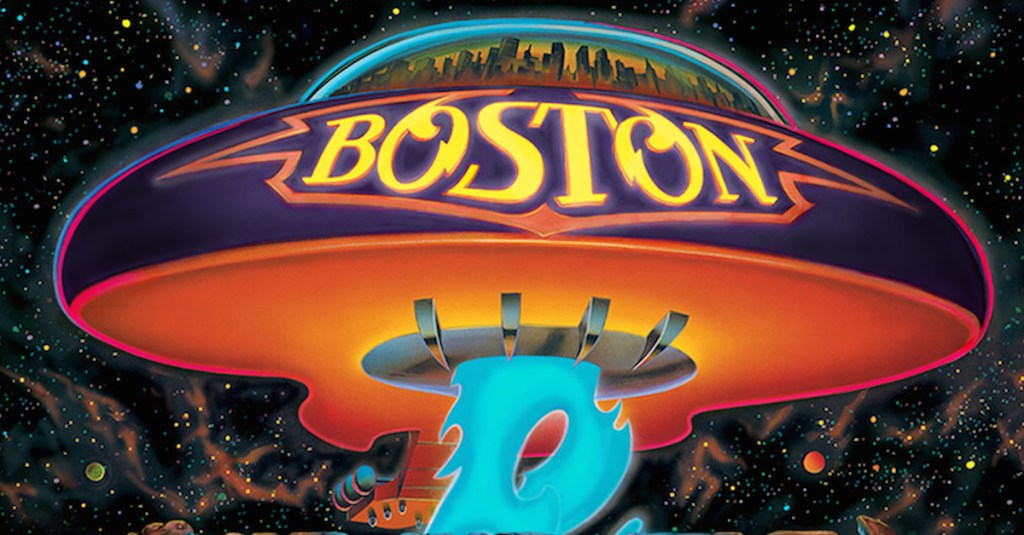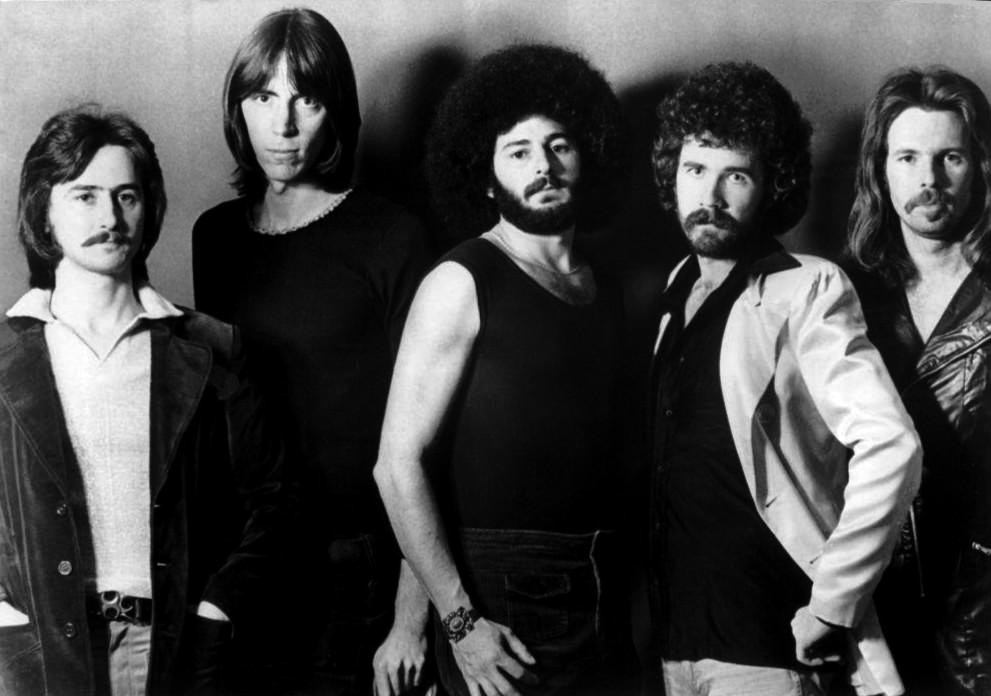
***WRITER’S NOTE*** I do understand that it has been over three years since this series was updated. I am back now to try to add to the legacy of this list!
There is a term in the music industry – a “one hit wonder” – for an artist or a band that has one massive hit that simply overpowers everything that the act does for the rest of their career. But there are also those that had that one massive hit and, despite their best efforts, are unable to equal the quality or success of that masterpiece. The self-titled album from the band Boston falls into this category.
Released in August of 1976, Boston was a monumental occurrence in the world of rock and roll. What makes it even more impressive is the backstory to the album. That backstory would not have been heard, however, if it weren’t for the fact that the record was an immense moment in the passage of rock and roll time, making it truly memorable and worthy of this list.
In the early 1970s, guitarist Tom Scholz and singer Brad Delp had put together several songs that made the rounds of the labels, but there were no takers for what they were offering. Their demo tape would eventually make its way to Epic Records, who took a flyer on the duo and signed them to a deal. Indicative of the upcoming history of the band, the issues started almost immediately.
Epic, having spent the money to sign the duo, naturally wanted to keep an eye on their purchase in having them record in Los Angeles. Scholz wasn’t having that, however, preferring to work in his sanctuary of a home recording studio back in Boston. Scholz was not just being a tempestuous artist – he actually had developed recording concepts, without the usage of synthesizers, keyboards storing sounds or other electronic trickery, which could only be recreated in his basement studio, thus requiring the creation of the album on the East Coast instead of the West. Using his co-producer, John Boylan, as an intermediary with Epic Records, Scholz set about recreating the demo tapes for the inaugural album.
Scholz played nearly all the instruments on that debut album, with Delp’s soaring vocals carrying the tunes to meteoric heights. There were other players who would contribute to the record and, in fact, be listed as members of the band “Boston” (including Barry Goudreau on guitar, bassist Fran Sheehan, and drummer Sib Hashian), but the original work was all Scholz.

The album was an instant success. Boston would go on to become, at the time, the biggest selling debut album in the history of the industry, eventually selling over 17 million copies. All eight of the tracks on the record were constantly played on Album Oriented Rock (AOR) radio, and three of the songs, “More Than a Feeling,” “Long Time” (often played with its intro, “Foreplay,” on AOR radio), and “Piece of Mind,” were Top 40 hits. The band Boston would become a touring force on the “arena rock” circuit, alongside such bands as Foreigner, Kansas, and REO Speedwagon.
So, what made the album so special? It is difficult to quantify this, but simply put each song on Boston was given meticulous attention by Scholz to make it as perfect as possible. Part of the charm of the album, especially in the era of disco and its overdubbed drums and bass beats, what the factor that there was no computerization or electronic effects on the record. It was purely Scholz and Delp, doing what they did best.
It certainly helped that each song would have been a singular masterpiece in its own right. “More Than a Feeling” kicks off the record, followed up by the acoustic/electric work on “Peace of Mind.” Then you had the epic “Foreplay/Long Time,” which would have been a wasteful excess in the hands of another artist but served as a triumphant and exciting close to what was just the first side of the album.
The second side of Boston could have been forgiven if it were filler, but Scholz’s meticulous nature would not allow that to happen. In fact, the second side of this album puts to shame pretty much anyone else’s FIRST side of an album. You had the dual guitar rockers “Rock & Roll Band” and “Smokin’” to lead off Side Two, before segueing in to a slowdown to the ending climax in “Hitch a Ride” and “Let Me Take You Home Tonight” (“Something About You” would have been better placed ahead of “Hitch a Ride,” but this is a quibbling point).
To put it bluntly, it was eight songs of excellence from a perfectionist (maybe two, counting Delp). But it was also unsustainable.
When you have the type of success that Boston did, it was almost automatic that you would be back in the studios to do a follow up. Scholz, Delp and Company did just that, following up this masterpiece two years later with a decent but uninspired Don’t Look Back. It had its share of success, especially with the title track, but it did not have the same cachet (or sales) that the Boston album garnered.
Then began Boston and Scholz’s Long Exodus. Frustrated with the pace that the label wanted regarding the band’s album releases and touring schedule, Scholz would enter the courtroom to battle it out with Epic (the band and Scholz would eventually win the lawsuit). A long eight years would pass before the band Boston would release another album (the intriguing Third Stage) but, by that point, the music world has passed the band by.
It would be another eight years before the final Boston album was released, 1994’s Walk On, which was empty with the lack of Delp on the vocals, and Boston was essentially over. Sure, Scholz has continued to issue albums under the Boston moniker, but they lack the same vitality that was found in the early work of him and Delp. The last album by this version of Boston, Life, Love & Hope, was released in 2013.

Here is a subject that comes up frequently when Boston, the band, is discussed. If their debut was such an impressive album, why aren’t they feted with induction into the Rock & Roll Hall of Fame? The reason is a simple one – the music that the band performed didn’t break any new ground, they were minimally influential, and they did nothing to change the direction of “rock and roll.” Boston was a good rock band, but they were far from an immortal (you could also discuss Scholz getting more attention for his production and guitar innovations, but that is a discussion for another time).
There is no shame is having one of the great albums in the history of rock and roll, however, and that is what Boston, the album, was. The record was a monumental piece of 70s arena rock folklore that deserves to be respected. It is also critical that any record collection should have the album to capture that snapshot in time.
Previous Essential Albums:
Queensrÿche, Operation: Mindcrime (1988)
Johnny Cash, Johnny Cash at Folsom Prison (1968)
The BusBoys, Minimum Wage Rock & Roll (1980)
Rockpile, Seconds of Pleasure (1980)
Metallica, …And Justice for All (1988)
Rick Wakeman, Journey to the Center of the Earth (1974)